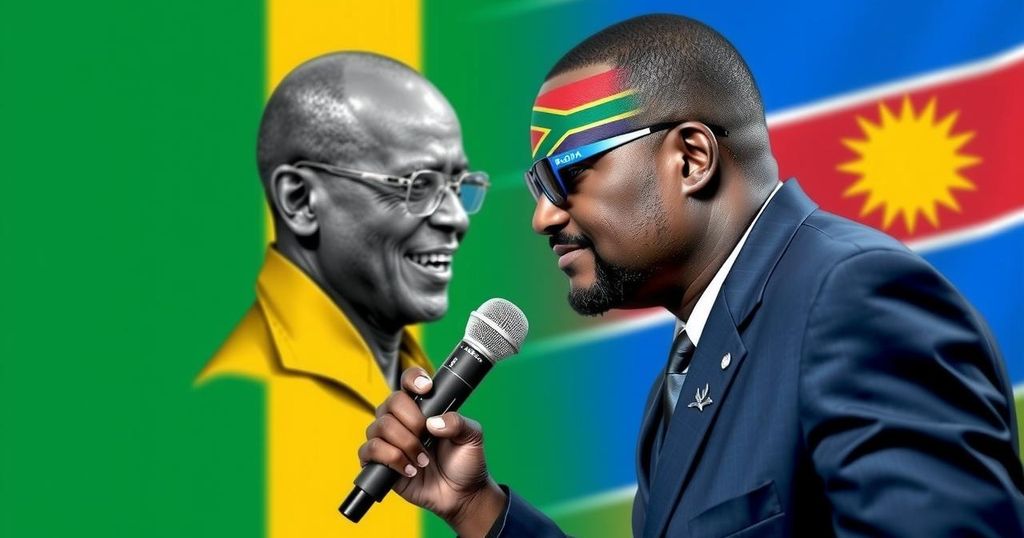Namibian Elections: SWAPO Confronts Fragmented Opposition in Pivotal Vote
Namibian elections feature SWAPO facing pressure from a divided opposition. Following a decline in support, SWAPO seeks to secure its position against key challengers, including IPC leader Panduleni Itula and potential first female president Netumbo Nandi-Ndaitwah. The fragmented political landscape, coupled with socio-economic promises, characterizes this pivotal electoral cycle.
In Namibia, presidential and parliamentary elections are underway, with the South West Africa People’s Organisation (SWAPO) striving to maintain its dominance in a landscape characterized by dwindling support for long-standing ruling parties across southern Africa. SWAPO, in power since 1990, is confronted with challenges stemming from a declining voter base, following a diminished majority in the 2019 elections and loss of urban control in the subsequent local elections. Despite this, political analysts indicate that the fragmented opposition may afford SWAPO greater resilience.
The opposition, composed of 21 parties fielding 15 presidential candidates, is reported to be significantly fragmented, often motivated by personal ambitions rather than coalitional strength. Political scientist Rui Tyitende noted, “The reason for the fragmentation is not related to political or ideological issues, but to egos, to personality clashes,” reflecting the difficulties the opposition faces in presenting a unified front to challenge SWAPO effectively. A proportional electoral system supports this fragmentation, allowing even minor parties to hold seats in parliament, potentially complicating the opposition’s prospects.
Notably, Netumbo Nandi-Ndaitwah, currently the vice president, aspires to become Namibia’s first female president, promising job creation and addressing pressing issues such as reproductive rights and gender equality. Her long-standing political career positions her favorably among constituents, although skepticism remains about the achievability of her ambitious economic promises.
The Independent Patriots for Change (IPC), led by former SWAPO member Panduleni Itula, emerges as a formidable challenger, particularly following his impressive performance in the 2019 elections. However, potential criticisms regarding his personal life may complicate his appeal to voters. Political commentators predict the IPC may serve as Namibia’s official opposition, with the new left-wing Affirmative Repositioning (AR) party also anticipated to gain traction.
In conclusion, while SWAPO faces unprecedented challenges ahead of the elections, the fragmented nature of the opposition may allow it to navigate through these turbulent waters. The upcoming elections will not only determine the future leadership of Namibia but also gauge public sentiment towards established political structures in a region where the tides of change are conspicuous.
The article discusses the prevailing political scenario in Namibia, especially during the country’s recent presidential and parliamentary elections. SWAPO, which has ruled since independence in 1990, is under scrutiny following a loss in voter support evidenced in the 2019 elections. This sentiment is echoed throughout southern Africa, where traditional ruling parties encounter heightened opposition and civil unrest. The intricate dynamics of Namibian politics are shaped by factors such as opposing viewpoints, electoral systems, and the historical context of its colonial past.
In summary, the impending Namibian elections present a critical moment for SWAPO, as it strives to retain control amidst a fragmented opposition landscape. The political aspirations of key figures, such as Netumbo Nandi-Ndaitwah, alongside challenges posed by the IPC and AR parties, suggest a potential shift in the political dynamics of Namibia. The outcome may not only impact the ruling party’s hold but could also redefine voter engagement in a changing Southern African political landscape.
Original Source: www.dw.com




Post Comment